Global challenges for the water industry in the Food and Beverage industry
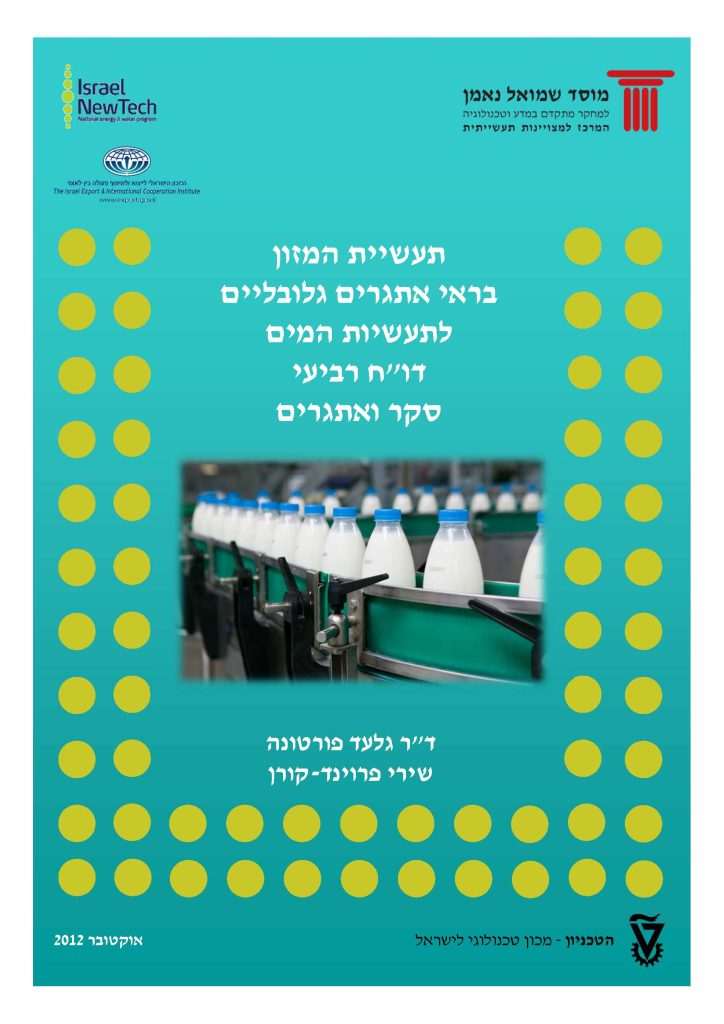
This report reviews the Food and Beverage industry with emphasis on Dairy factories and Soft Drink production factories. All of those in order to identify the role of water in the production as well as water treatment needed in regarding to water use, saving water, reuse, recycle and regulated emission to the environment. This is […]
Israel Adaptation to Climate Change Policy – ICCIC 1st Report – Executive Summary
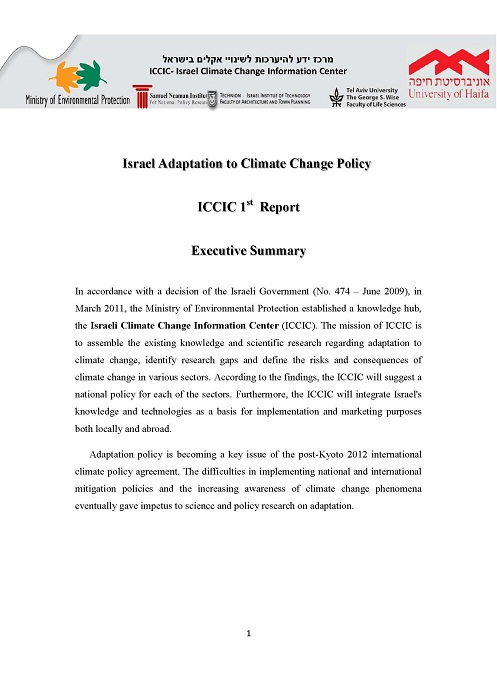
The Israeli Climate Change Information Center (ICCIC) was founded in March 2011, at the University of Haifa by the Ministry of Environmental Protection, as part of the national program for Israel’s adaptation to climate changes, set by the Government’s Resolution 474 ( 2009). The main goal of the ICCIC is to develop a national scientific […]
Report #2– Israel Adaptation to Climate Change Policy Recommendations
The Israeli Climate Change Information Center (ICCIC) was founded in March 2011, at the University of Haifa by the Ministry of Environmental Protection, as part of the national program for Israel’s adaptation to climate changes, set by the Government’s Resolution 474 ( 2009). The main goal of the ICCIC is to develop a national scientific […]
A comparative study on the scientific and technological research in Israel and some middle eastern countries, using quantitative indicators, second ed
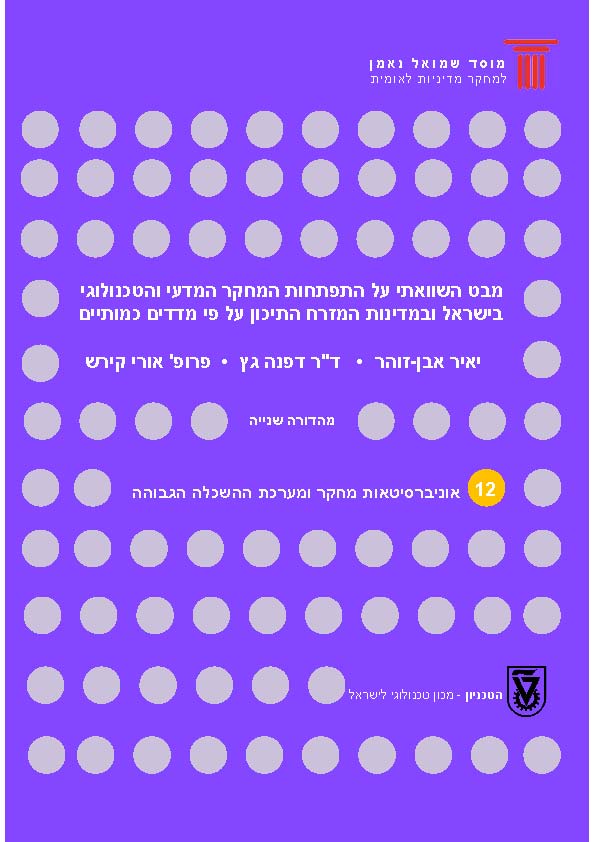
The study presents a comparative examination of the development process of scientific and technological research that has taken place in the Middle East, especially in the more advanced countries, and in Israel. The data presented are based on two main indices: the number of publications and the average citations per publication. The data indicate that […]
“Toward Mapping National Innovation Ecosystems: Israel’s Innovation Ecosystem”
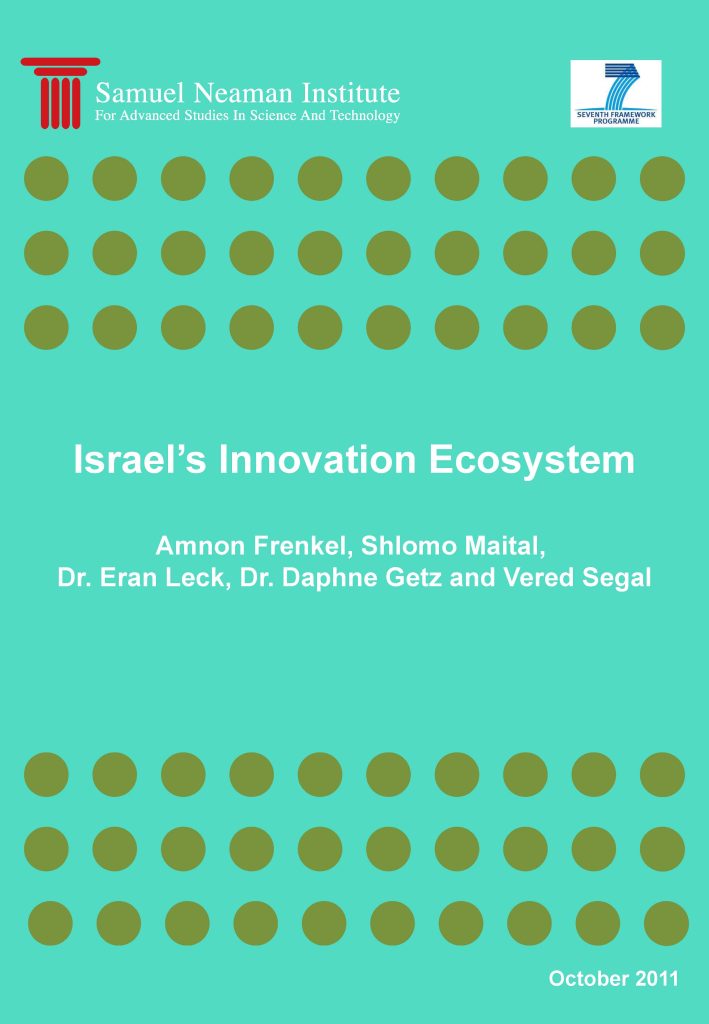
We present a method for building visual national innovation ecosystem maps, showing a country’s full innovation system, and illustrate it by constructing and presenting such an innovation map for Israel
A comparative study on the scientific and technological research in Israel and some middle eastern countries, using quantitative indicators
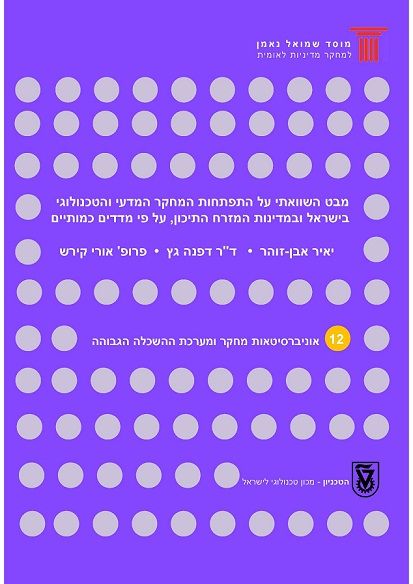
The study presents a comparative examination of the development process of scientific and technological research that has taken place in the Middle East, especially in the more advanced countries, and in Israel. The data presented are based on two main indices: the number of publications and the average citations per publication. The data indicate that […]
Road Map – A National Program to Promote the Integration of the Ultra-Orthodox Population in the Israeli Economy
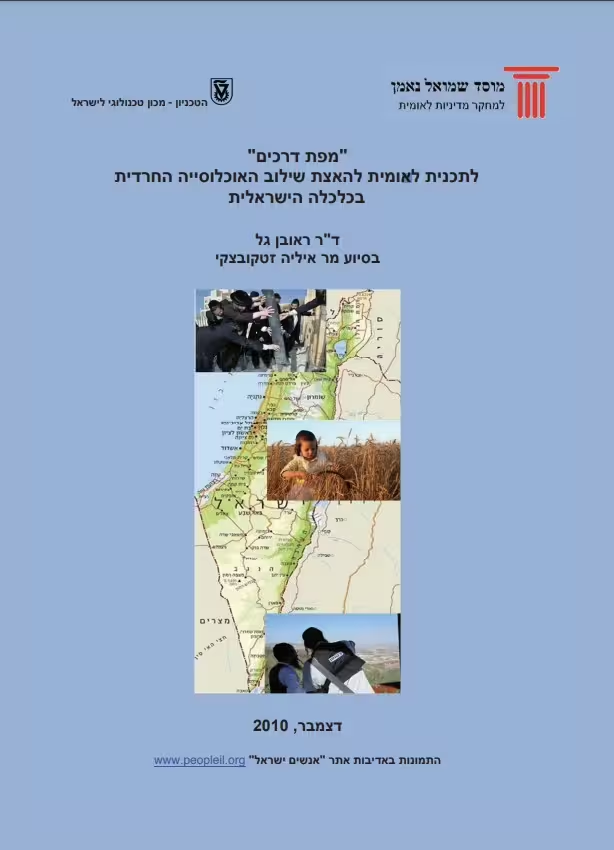
The “Road Map” is an off-shoot of the “Israel 2028 : Vision and Strategy for Economy and Society in a Global World” report. Its goal is to outline solutions for one of the major problems concerning the Israeli economy that is identified in the report: the low rate of participation of the Ultra-Orthodox community in […]
The Israeli innovation system: An overview of national policy and cultural aspects
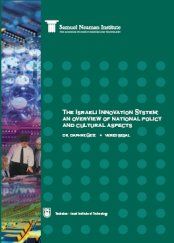
The goal of this overview, which was prepared by the Samuel Neaman Institute, is to examine the national policies and cultural aspects that support and lead Israeli innovation. Material for this document were gathered from various reports, documents, and articles written on the subject, so as to present a comprehensive and general picture of the […]
Israel 2028 – Vision and Strategy for Economy and Society in a Global World

This project was initiated and supported by the US Israel Commission of Science and Technology (USISTC). It was managed by a public committee, and carried out over 2 years by some 60 researchers and a significant portion of it was done at the Samuel Neaman Institute. The report was submitted to the Prime Minister who […]
A National Plan for the Chemical Industry in Israel
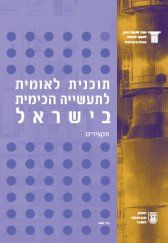
The National Plan for the Chemical Industry in Israel is a large project that the Samuel Neaman Institute has been leading since 2004. The project analyzes past and present chemistry and pharmaceutical branches produced in Israel, present alternatives and demonstrates new industry branches in this field. This project compares this industry with other global markets […]
